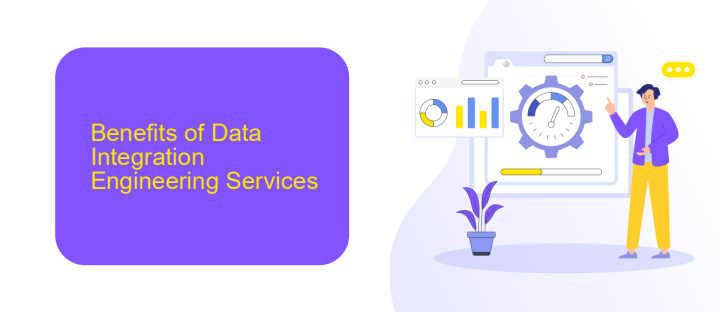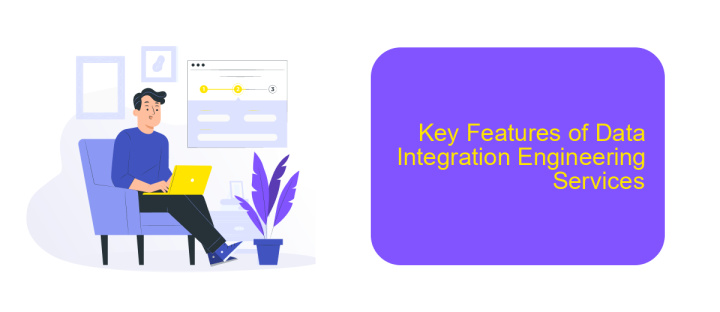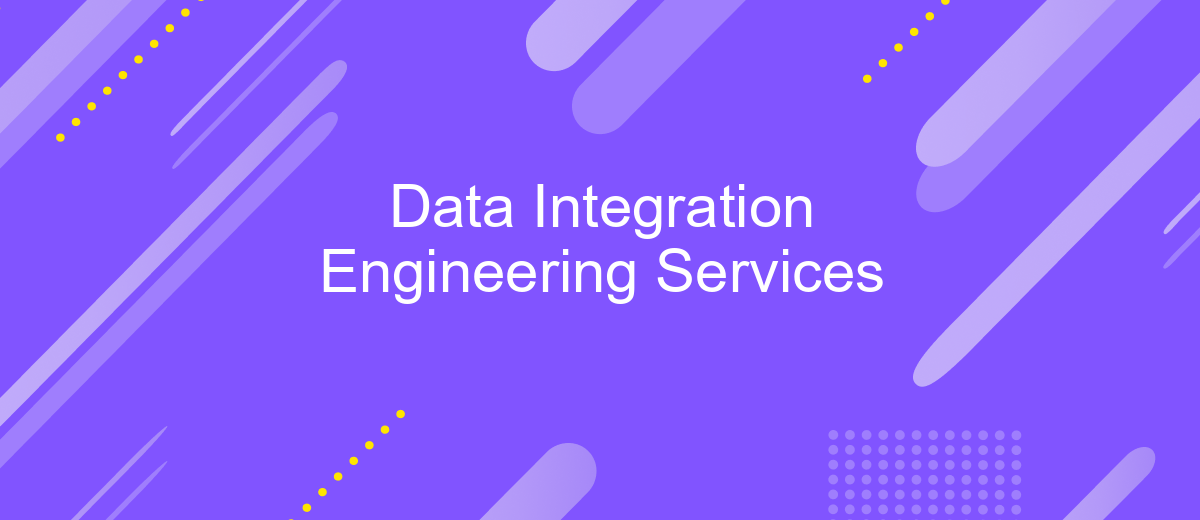Data Integration Engineering Services
In today's data-driven world, seamless integration of diverse data sources is crucial for business success. Data Integration Engineering Services offer tailored solutions to unify disparate data systems, ensuring efficient data flow and accessibility. By leveraging advanced technologies and expert methodologies, these services empower organizations to make informed decisions, enhance operational efficiency, and drive innovation. Discover how Data Integration Engineering can transform your data landscape.
About Data Integration Engineering Services
Data Integration Engineering Services are crucial for businesses looking to streamline their operations and enhance data accessibility. These services involve the consolidation of data from various sources into a unified system, ensuring that the information is accurate, consistent, and readily available for analysis and decision-making.
- Seamless integration of disparate data sources
- Real-time data synchronization
- Enhanced data quality and consistency
- Scalable solutions for growing data needs
- Customizable integration workflows
One effective tool for managing data integration is ApiX-Drive, which simplifies the process by providing an intuitive platform for setting up and maintaining integrations. With ApiX-Drive, businesses can automate data flows between various applications and systems without the need for extensive coding or technical expertise. This leads to more efficient operations and better data-driven decision-making.
Benefits of Data Integration Engineering Services

Data integration engineering services offer numerous benefits that significantly enhance business operations. By consolidating data from various sources into a unified system, these services ensure seamless data flow and accessibility, thereby improving decision-making processes. This integration reduces redundancy and errors, leading to more accurate and reliable data. Additionally, it streamlines workflows, making it easier for teams to collaborate and share information efficiently.
Moreover, leveraging tools like ApiX-Drive can further optimize data integration efforts. ApiX-Drive facilitates the automation of data transfers between different applications, saving time and reducing manual effort. Its user-friendly interface allows for quick setup and management of integrations, ensuring that even non-technical users can handle complex data workflows. By utilizing such services, businesses can achieve greater operational efficiency, scalability, and agility, ultimately driving growth and innovation.
Challenges of Data Integration Engineering

Data integration engineering presents a range of challenges that can complicate the seamless merging of disparate data sources. These challenges are often technical, organizational, and operational in nature, requiring a multifaceted approach to address them effectively.
- Data Quality: Ensuring the accuracy, completeness, and consistency of data across different sources.
- Scalability: Managing the increasing volume of data as organizations grow.
- Data Security: Protecting sensitive information from unauthorized access and breaches.
- Interoperability: Ensuring different systems and software can communicate and work together effectively.
- Real-Time Integration: Providing up-to-date data in real-time for decision-making processes.
Services like ApiX-Drive can significantly alleviate some of these challenges by offering automated data integration solutions. ApiX-Drive provides a user-friendly platform that simplifies the process of connecting various data sources, ensuring real-time data synchronization and enhancing overall data quality. By leveraging such tools, organizations can streamline their data integration efforts, allowing them to focus on deriving actionable insights from their integrated data.
Key Features of Data Integration Engineering Services

Data Integration Engineering Services play a crucial role in streamlining business operations by ensuring seamless data flow between various systems. These services help organizations consolidate data from multiple sources, making it easier to analyze and utilize for strategic decision-making.
One of the key features of these services is the ability to automate data integration processes, thereby reducing manual effort and minimizing errors. By leveraging advanced tools and technologies, businesses can achieve real-time data synchronization and maintain data consistency across platforms.
- Automated data synchronization
- Real-time data processing
- Scalability to handle large volumes of data
- Support for diverse data sources and formats
- Enhanced data security and compliance
Services like ApiX-Drive further enhance data integration by providing user-friendly interfaces and pre-built connectors for various applications. This allows businesses to quickly set up integrations without extensive technical expertise, ensuring that data flows smoothly and efficiently across all systems.


Applications of Data Integration Engineering Services
Data Integration Engineering Services play a crucial role in modern enterprises by streamlining the process of combining data from various sources into a unified view. These services are vital for businesses looking to optimize their data management, enhance decision-making, and improve operational efficiency. By integrating data from disparate systems, companies can achieve a comprehensive understanding of their operations, customer behaviors, and market trends.
One practical application of Data Integration Engineering Services is in the deployment of tools like ApiX-Drive, which facilitates seamless integration between different software and applications. ApiX-Drive allows businesses to automate workflows by connecting various APIs without the need for extensive coding. This not only saves time but also minimizes errors associated with manual data entry. Additionally, such services enable real-time data synchronization, ensuring that all systems are up-to-date and providing accurate information for strategic planning and analysis.
FAQ
What is Data Integration Engineering?
Why is Data Integration important for businesses?
What are some common challenges in Data Integration?
How can automation help in Data Integration?
What should I consider when choosing a Data Integration tool?
Strive to take your business to the next level, achieve your goals faster and more efficiently? Apix-Drive is your reliable assistant for these tasks. An online service and application connector will help you automate key business processes and get rid of the routine. You and your employees will free up time for important core tasks. Try Apix-Drive features for free to see the effectiveness of the online connector for yourself.

